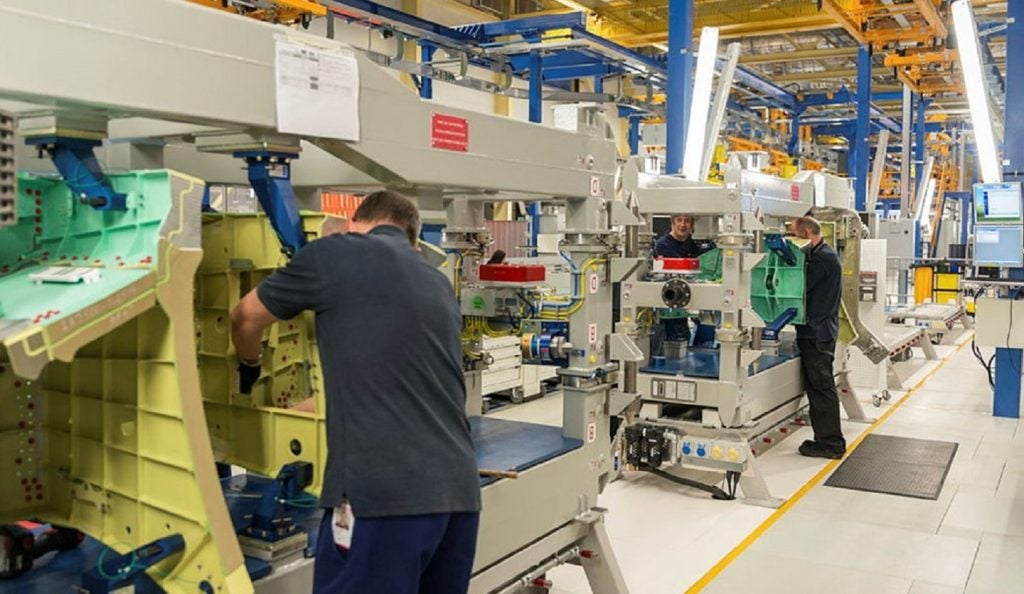
The UK Ministry of Defence (MOD) published its Climate Change and Sustainability Approach around six months ago and talks around climate change and the need to combat it have become increasingly urgent. At the recent DSEI event, report author Lieutenant General (ret.) Richard Nugee spoke about the responses to the review and technology’s role in fighting the climate emergency.
Norbert Neumann: Could you talk me through the background to the MOD’s Climate Change and Sustainability Approach, and why climate change is of personal interest to you?
Richard Nugee: We are damaging the environment through what we do, and all the science shows that there’s been a rapid increase [in global warming] since the 1950s, which is when the world’s GDP rapidly increased, and we are just using more of this stuff. There’s logic to the fact that we are damaging something as humans, so we, as humans, can do something about it.
When I looked at the MOD in about October 2019, I did not see – apart from a few really good projects – the MOD seriously considering the effects of climate change on defence’s capability. And also the effects of defence on climate change. We are heavy users of fossil fuels when it comes to aircraft carriers and fast jets.
I felt that there was something that we needed to do about it, so I offered to do a study, a review, and to come up with a plan as to what to do about all the emissions of the MOD, and of what is going to have to change in the MOD to be able to operate in a climate-changed world. The scientists are saying we’ve already locked in a climactic environment of 2030, so it’s going to happen to us, and I wrote the report to get the MOD to change its mind.
It has been six months since the report was published, have you seen any significant changes in how the MOD or manufacturers approach things?
I am pleasantly surprised by industry’s approach to this. Almost all the industries I am talking to have looked at how they can reduce their own carbon footprint, but also at how they can provide the contracts that we need for the equipment that we need with less carbon.
Non-defence customers and their investors are demanding it, so they are, in a sense, almost ahead of where we are in the MOD that they are very keen to show us where they can reduce carbon emissions and where they can increase sustainability so industry [is] massively on top.
How well do you really know your competitors?
Access the most comprehensive Company Profiles on the market, powered by GlobalData. Save hours of research. Gain competitive edge.

Thank you!
Your download email will arrive shortly
Not ready to buy yet? Download a free sample
We are confident about the unique quality of our Company Profiles. However, we want you to make the most beneficial decision for your business, so we offer a free sample that you can download by submitting the below form
By GlobalDataIn the MOD, there have been structural changes as a result of my report. There is now a climate change and sustainability director within the MOD, who is coordinating the approach to climate and security and climate and emissions. It will take time to embed in all our systems and processes; it might even take a couple of years to really embed it so that we have to consider this [the report] before every decision we make – which is what my ambition is.
I think what the report has done is brought industry closer to us because industry sees that we are desperately trying to do the right thing for all sorts of reasons, but also it has given all the elements of the MOD the licence to talk about and think about it, and to put money towards it without it being dismissed as an unnecessary extra cost.
Why is climate change relevant to defence and vice versa?
There’s a legal requirement for us as a government and as an element of the government, to contribute towards meeting net-zero. The MOD accounts for 50% of central government’s emissions. So, the government by definition will not get to zero unless we do something.
There is an opportunity that we need to take in order to improve our capability in a climate-changed world. If we don’t take it, then our capability will diminish over time because we’re not paying attention to the environment we’re operating in, or the opportunities that are there to make our equipment better whilst still reducing emissions.
But there’s the side that is now generally accepted that climate change has the potential to lead to significant conflicts and geopolitical differences across the world. We, the MOD, always look to go to the forefront of technology. Why would this be any different?
What are the main MOD initiatives and technological advancements to combat climate change and work towards a sustainable future, and what is the role of technology in the whole of this?
We’ve been relying on fossil fuels to burn to propel vehicles, whether they’re ships, land vehicles, or aircraft. It’s a fundamental basic building block that we’re asking to change. But there are opportunities for electric drives and renewable sources of energy for our state. There are opportunities to become more resilient and self-sufficient. But not all of these are things that the MOD should be doing the research and development for. What’s really important is that we deploy.
What would you say to someone who claims that reducing or eliminating emissions means also reducing capabilities?
I’m really clear about this; this is not something that is an either/or, this is a win-win. Take the hybrid Jackal reconnaissance vehicle for the army. It has electric drives on its wheels, a battery, and – currently a diesel engine but it could be a sustainable fuel engine – that fills up the battery. It’s better operating, it’s better for its crew, it lasts longer, drives better. It’s better as a stealthy vehicle around the battlefield and it reduces emission. Why wouldn’t we take advantage of technology like that? It’s not a zero-sum game.
It won’t be the answer to everything. But we should be looking at every increment we can and to try and reduce our reliance on carbon-emitting products to try and make sure that actually, we reduce our emissions and at the same time is maintaining capabilities.
The UK will host COP26 this year in October. How important are the MOD’s actions in accelerating actions to meet the Paris Agreement’s goals?
Whilst COP26 may not be the perfect place to try and make sure that other countries understand the implications of climate change on them, I don’t see any reason why the MOD should not try to demonstrate the world, and to the world’s militaries, that you can increase capability at the same time as reducing emissions.
That you can reduce emissions and you must pay attention to the potential conflicts in the world as a result of climate change. And there’s no reason why the entity shouldn’t lead on that.
Does multi-domain integration go hand-in-hand with sustainability or are there any potential clashes in providing the infrastructure and technology that enables the joining of all domains?
There are some difficulties. A simple issue is the nature of the single-fuel policy made by NATO. It was a Norwegian admiral who told me there’s no point in us converting all our ships to one type of fuel if we can’t refuel in the UK when we come to the other side of the North Sea. So, it is potentially a problem, but not one that cannot be worked out.
I think what will happen over time is that a particular class of aircraft, for instance, will have a particular fuel type attached to it. So, a mid-range aircraft – it’s what the scientist told me – could operate on hydrogen fuels and small aircraft could operate on electricity. Larger aircraft are going to have to work on sustainable aviation fuel because neither electric nor hydrogen fuel cells will deliver them the power they need. But within those brackets, you can still have a single fuel policy.
It will require, most importantly, protocols and standards which don’t exist in every place. Those have to be written before we can change the course of the century. But I am sure it’s not beyond us to be able to deliver those sorts of standardisation across our allies, which will allow us to be able to operate together. If you can do that, there is no reason why climate change should be any more of a problem than the most extreme integrations.







Related Company Profiles
Ministry of Defence
NATO